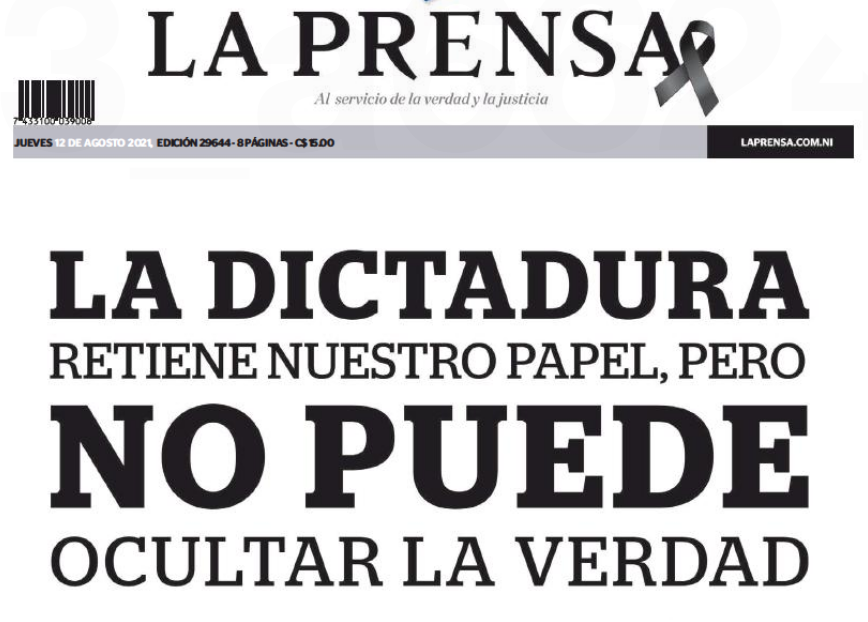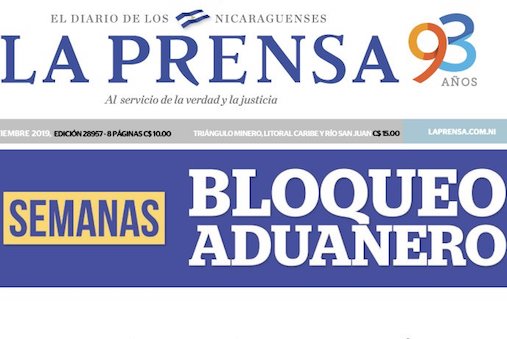
Newspaper La Prensa of Nicaragua circulated in print for the last time on Aug. 12, at least temporarily, due to the lack of raw materials, the publication reported. La prensa said it will continue to report through social media and its website.

It is the 67th newspaper to end its print offering, either temporarily or permanently, between 2013 and 2019, according to IPYS Venezuela. Zulia joins three other Venezuelan states which no longer have a print publication, the press freedom organization added.
The 86 newspapers that are part of the Regional Chamber of Venezuelan Newspapers were declared to be "in emergency" after the organization learned that there is no paper to continue operations, according to the newspaper La Nación in the Venezuelan state of Tachira.
The Colombian newspaper association Andiarios on April 1 sent 52 tons of newsprint paper from Cartagena to Venezuelan newspapers affected by the lack of printing paper in the country.
A group of Colombian media organizations plans to send newsprint to Venezuelan newspapers, which are facing a shortage of the valuable resource and possible shutdowns, said the president of the Venezuelan daily El Nacional, Miguel Henrique Otero, according to the publication El Universal.
A mayor in Honduras ordered the closure of a television channel and interfered with the distribution of the newspaper El Heraldo, reported the publication.
Soldiers in Argentina’s Gendarmerie police force raided the offices of Papel Prensa, the country’s top newsprint producer and the focal point of an ongoing conflict between the government and Clarín and La Nación, the two largest domestic dailies, EFE and DiarioJornada report.
The Argentine government has initiated new legal action against the newspapers Clarín and La Nación in order to remove the two companies' eight representatives from the board of Papel Prensa, the largest producer of newsprint in the country, Perfil.com reports. The government also wants “judicial intervention” against the papers in response to “numerous and serious irregularities” at the company.

Nearly seventeen months after protests first broke out in Nicaragua, independent journalists in the country and international press advocates are repeating calls to protect media workers and freedom of expression.
Nicaraguan newspaper La Prensa reported that there is a negotiation underway for the release of tons of paper and other materials, held by customs for more than 500 days, according to a note from the editorial board.

A report by Reporters Without Borders (RSF, for its initials in French) on obstacles to the distribution of print journalism in 90 countries highlighted Mexico as one of the “champions in obstructing the dissemination of newspapers and magazines.”
Nicaragua’s oldest newspaper reports it is having to change format due to withholding of ink, paper and other printing supplies by the General Directorate of Customs, according to news agency EFE.